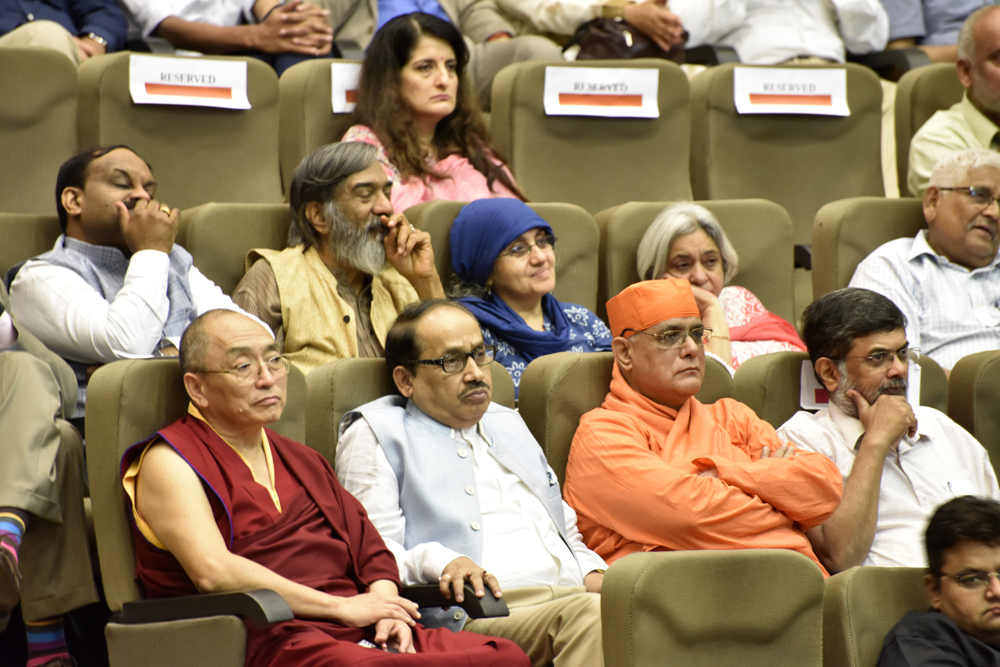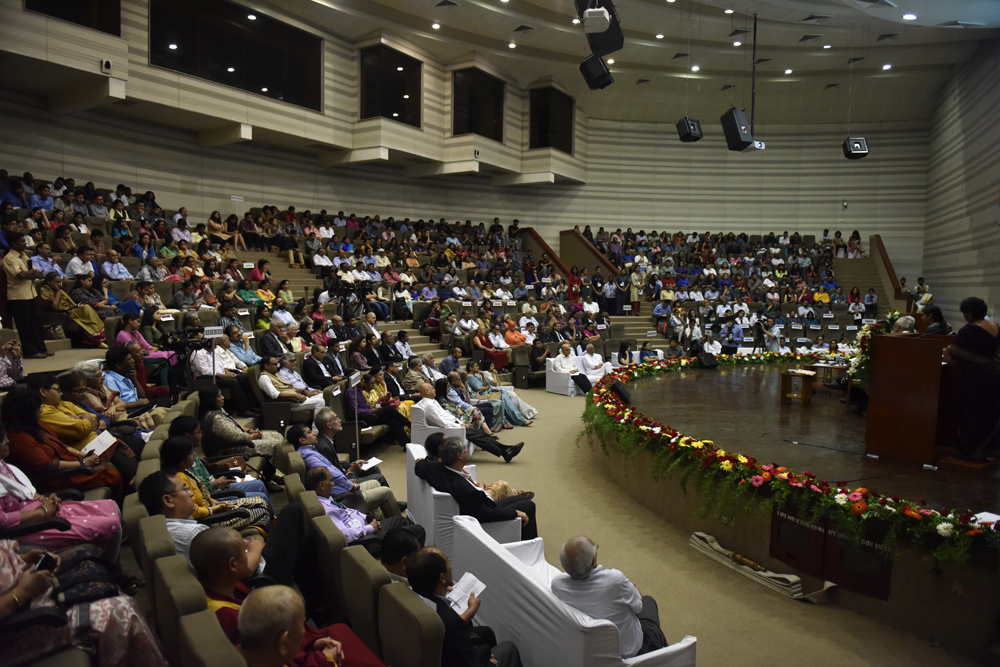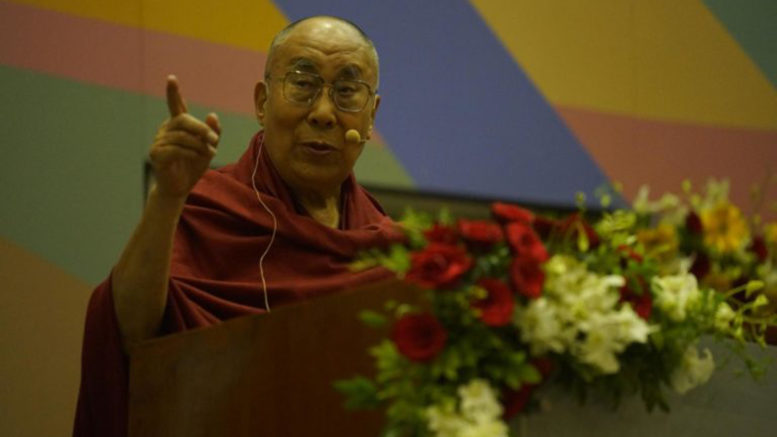MUMBAI: A unique course on “Secular Ethics for Higher Education” was launched by His Holiness the Dalai Lama, under whose guidance the course was developed at the Convention Centre of the Tata Institute of Social Sciences (TISS). This course on Secular Ethics aims to foster critical thinking and an inquiring mind; embodied
In his inaugural address, His Holiness said “the existing education system is oriented more towards materialistic development. But if we can incorporate secular ethics such as compassion and warm-heartedness into our education system, we can bring about a huge change,”
His Holiness remarked and lauded the institute’s foresight and initiative in introducing a special program dedicated to secular ethics.

His Holiness the Dalai Lama at the inauguration of the course on secular ethics by Tata Institute of Social Science, Mumbai, 14 August 2017. Photo/Tenzin Phende/DIIR
Commenting on moral values, His Holiness said “earlier people associated moral values with religion but nowadays it is relevant in every sphere of life. Moral values should be incorporated in courses right from kindergarten level to advanced studies” His Holiness said.
His Holiness hailed India’s long-standing tradition of according respect and accommodating differing religious faith and culture within its boundaries and called India a model for the rest of the world.
His Holiness further described India as the only country in the world, which can effectively combine secular ethics and modern education to produce sustainable results for the benefit of the entire sentient beings.
“While there could be innumerable sentient beings across the infinite galaxies, there are only 7 billion human beings on this planet. These 7 billion beings are biologically the same. We all have the seed of love and compassion,” His Holiness said.
“However, despite our common desire for happiness and the innate potential for love and compassion, we are facing a wave of violence perpetrated in the name of religion and greed. In light of these, the future doesn’t look promising,” His Holiness noted.
His Holiness the Dalai Lama at the inauguration of the course on secular ethics by Tata Institute of Social Science, Mumbai, 14 August 2017. Photo@ Tata Institute of Social Science
“Religion as a mass institution has immense power to transform people into better human beings. But frankly speaking, it has failed in many instances. While religion is a source of joy for many, people have also created sufferings in the name of religion. Now, we must look for other alternatives to bring peace, and education is the only viable option,” His Holiness said.
His Holiness also talked about cultivating emotional hygiene at par with physical hygiene and spoke about anger as a destructive emotion that can ruin the self as well as the other.
His Holiness further said, “I develop the conviction that different religions could live together, that’s why one of my commitments is religious harmony. Besides modern education of materialistic development, we must develop the teaching of secular ethics to train inner value”.
He stated Ahimsa is the manifestation of Karuna, action level is ahimsa and motivation level is Karuna.
A strong advocate of secularism and universal responsibility, His Holiness the Dalai Lama has long emphasised on secular ethics through the transformation of the existing education system as a response to the complex challenges of race, religious and economic divides faced by humanity.
His Holiness the Dalai Lama at the inauguration of the course on secular ethics by Tata Institute of Social Science, Mumbai, 14 August 2017. Photo@ Tata Institute of Social Science
The course is designed by Dr Monica Sharma, Tata Chair Professor and retired Director of Leadership and Capacity Building United Nations. “The course on Secular Ethics aims to provide a common foundation for multi-cultural diversity based on universal values of dignity, equity and compassion,” according to a press release issued by the Institute.
“This course on Secular Ethics will foster critical thinking and an inquiring mind embodied understanding through The course encourages praxis, based on the commonality of humanity and the ability to source this in the self and in the other to foster interdependence and well-being. This course embodies universal values individually and collectively, and helps unleash one’s full potential to shift disempowering systems and norms in order to create new patterns for equitable and sustainable results,” it said.
The inaugural event was attended by eminent scholars, professors, faculty and students of the Institute.
This course will be offered to 2nd year Masters students and M.Phil and PhD scholars and will involve 30 hours of teaching and 60 hours of practice. The course begins on August 19, 2017. The course primer was also released at the launch event.

His Holiness the Dalai Lama delivering the first lecture on Secular ethics at TISS, 14 August 2017.Photo/ Tenzin Phende/ DIIR

Audience at the launch of the book on secular ethics at TISS, Mumbai, 14 August 2017. Photo/ Tenzin Phende/ DIIR

Scholars at the launch of the course on secular ethics at Tata Institute of Social Science, 14 August 2017. Photo/Tenzin Phende/DIIR





